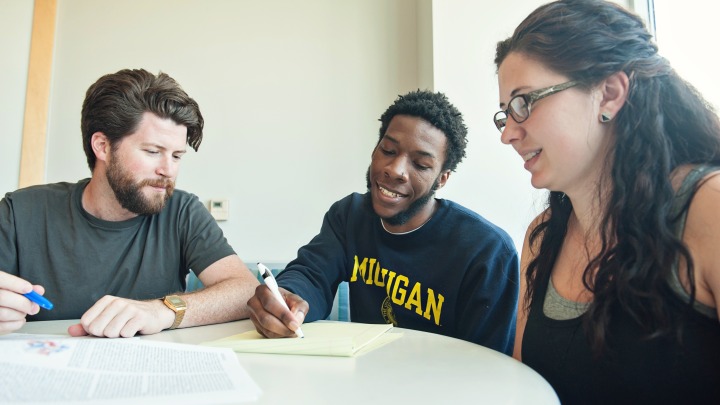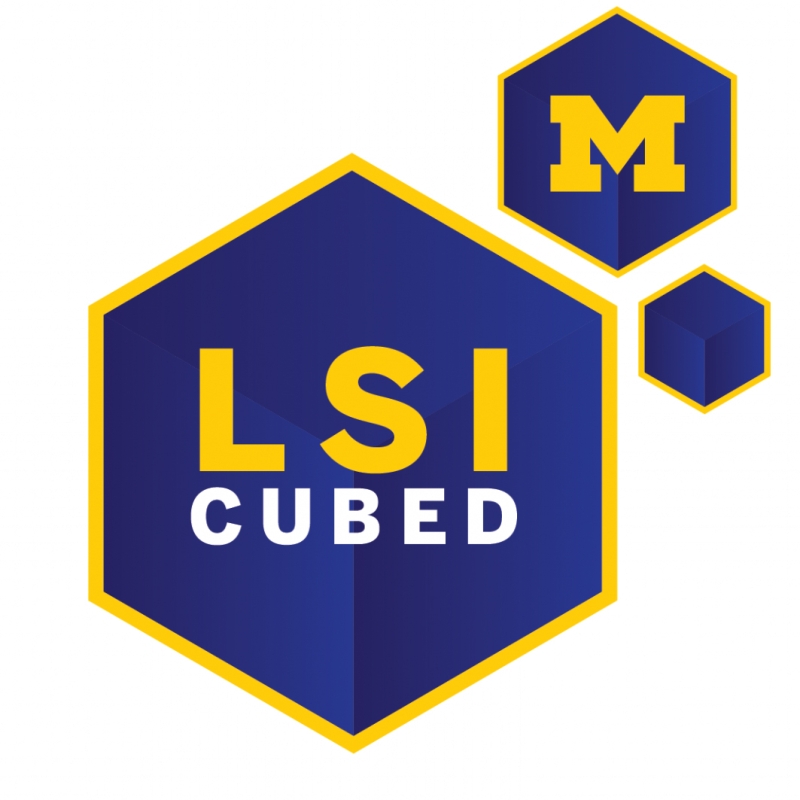
New grant program promotes trainee-initiated, collaborative research across LSI labs

During a discussion of how best to nurture a culture of collaboration among trainees within the University of Michigan Life Sciences Institute, a lightbulb went off for postdoctoral fellow Adam Iliff, Ph.D.
What if the LSI had its own version of the university’s successful MCubed program? The program could make research funds available for trainee-initiated projects that spanned two or more labs within the institute — promoting precisely the type of interdisciplinary cross-pollination the LSI was designed to foster.
Encouraged by LSI Managing Director Anna Schork and other members of the LSI’s Diversity, Equity and Inclusion Strategic Planning Team, where the idea was first discussed, Iliff and a small committee of graduate students and postdocs put together a proposal.
LSI Cubed “is designed to encourage trainees to take the lead and learn what others are doing in their labs, rather than depending on faculty mentors to create the projects,” the trainees wrote in their pitch.
The propoasal received the enthusiastic support of LSI Director Roger Cone, Ph.D. And thus, LSI Cubed was born!
“This program encourages our graduate students and postdocs to initiate interesting, meaningful research projects, while also providing a unique training opportunity,” says Cone. “Even teams whose projects aren’t ultimately selected will get valuable experience in areas like networking, grant writing, and preparing a budget.”
In its first round, a selection committee comprised of LSI research scientists recommended funding for five, one-year research projects with budgets of up to $10,000 each. Each of the recommendations received resounding approval from Cone.
Projects funded in this initial round include:
-
Structural biology studies of the polyketide synthases that make juvenimicins, an important class of antibiotics. Deciphering these structures could aid the design of new antibiotics. (Andrew Lowell, Meredith Skiba and Kinshuk Srivastava; Sherman & Smith labs)
-
Identifying mutants that can activate the Vps34 protein in yeast, and testing the effect of these mutations on their ability to clean up the cell through autophagy. Vsp34 activation is hypothesized to potentially mitigate the effects of the mutant huntingtin protein, which is responsible for Huntington’s disease. (Sai Srinivas Panapakkam Giridharan, Noah Steinfeld and Vikramjit Lahiri; Klionsky & Weisman labs)
-
A machine-learning approach to engineering proteins for the biocatalytic synthesis of novel epipolythiodiketopiperazine derivatives as potential anti-cancer agents. “This work seems quite innovative and creative. Engineering novel natural products is not a trivial undertaking and seems quite exciting,” one reviewer wrote. (Clint Regan, Julie Garlick and Vikram Shende; Mapp & Sherman labs)
-
Characterization of natural products with potential to inhibit the calmodulin-GPCR kinase 5 interaction implicated in cardiac hypertrophy. If successful, the research may present a new class of molecules with potential therapeutic value. (Amy Fraley and Tyler Beyett; Sherman & Smith labs)
-
Identifying novel TRPA1 independent pathways to regulate thermogenesis. “Novel compounds that induce thermogenesis are obviously needed in the therapeutic arsenal,” one reviewer noted. (Elizabeth Ronan, Dongil Kim and Jianke Gong; S. Xu & Wu labs)
At the end of the project period, the LSI Cubed grant recipients will present their findings to the campus community.
“We’re very excited to see how these projects develop and fully anticipate funding another round of projects next year,” Cone adds.


